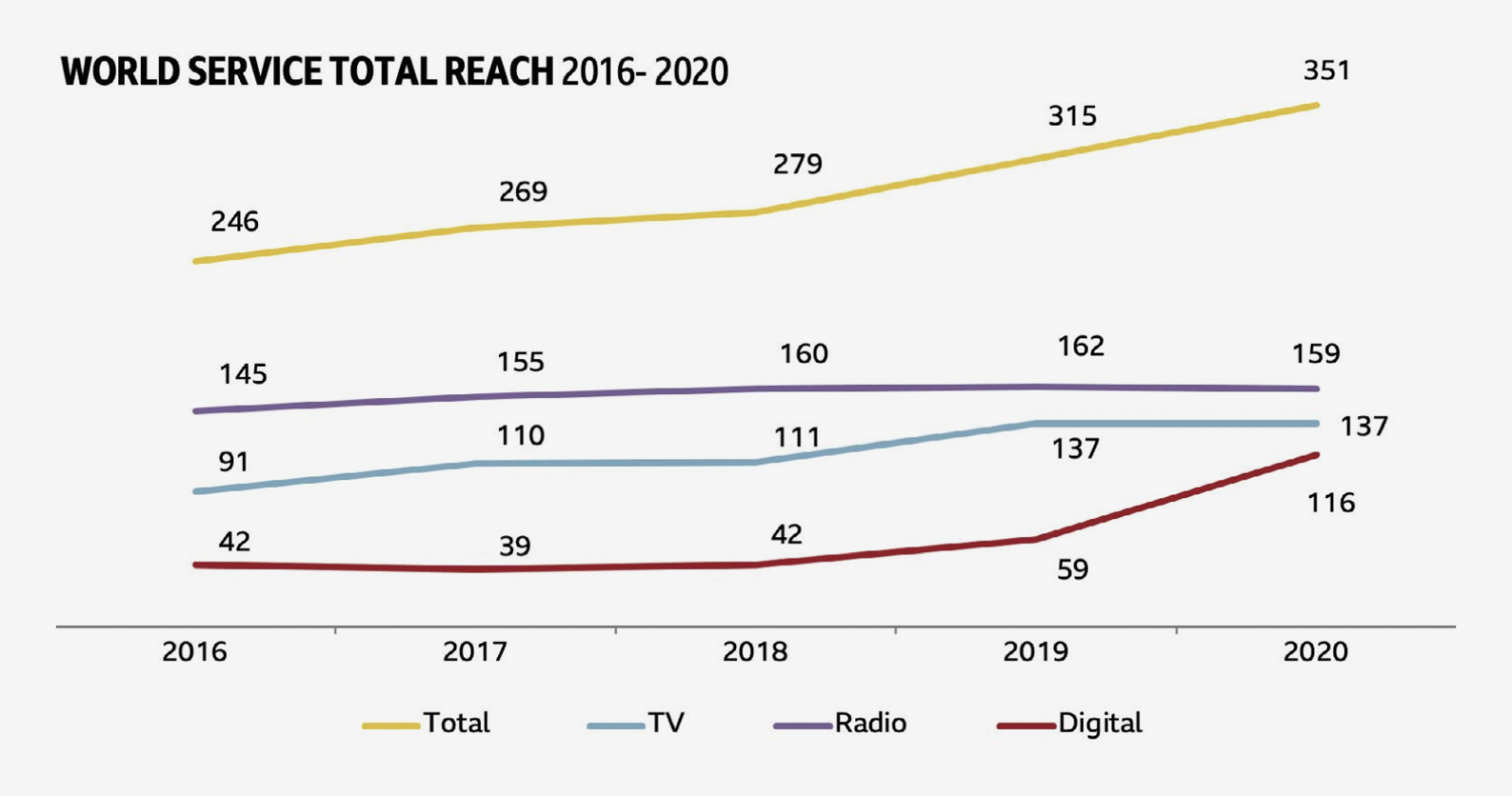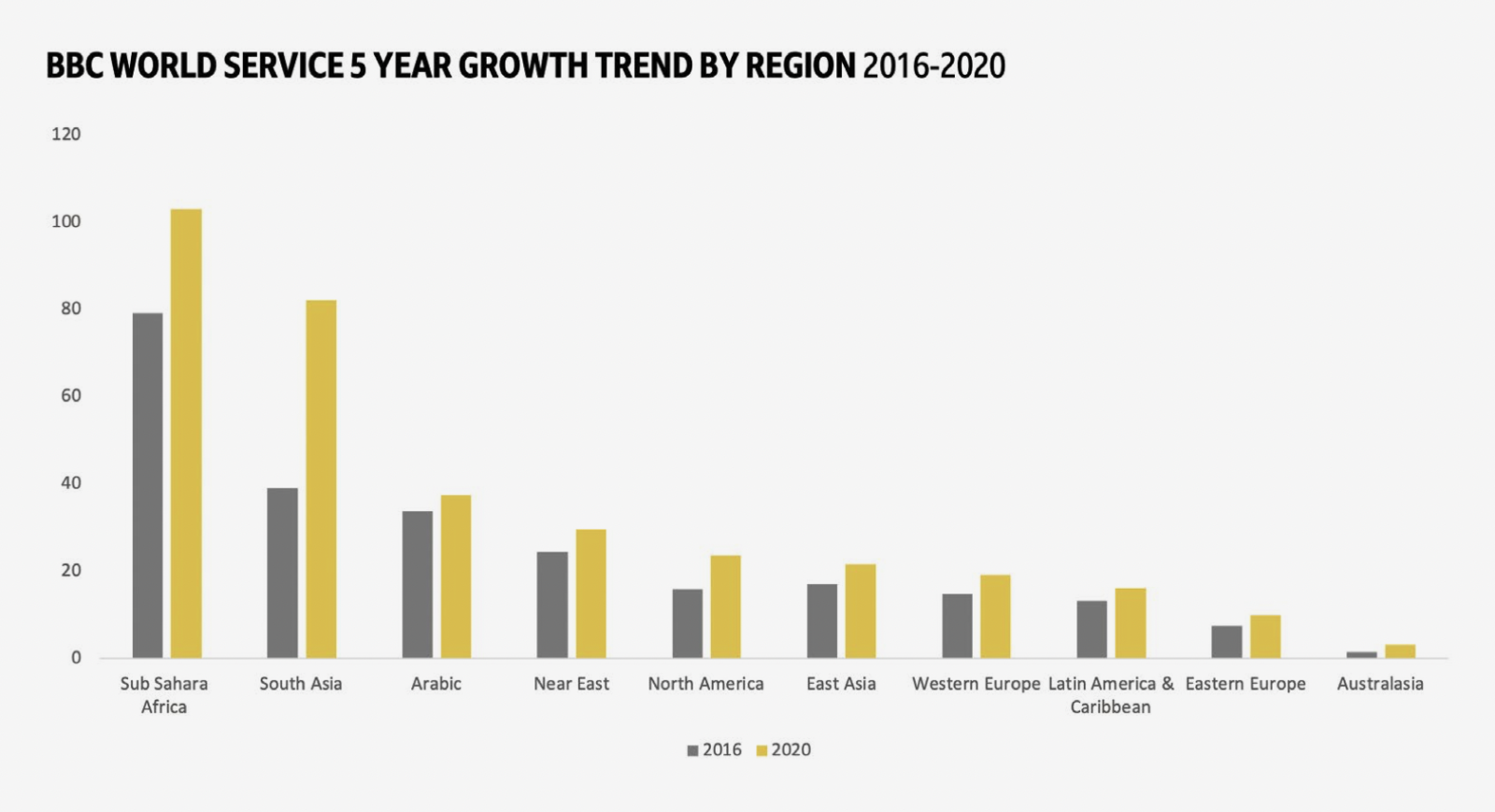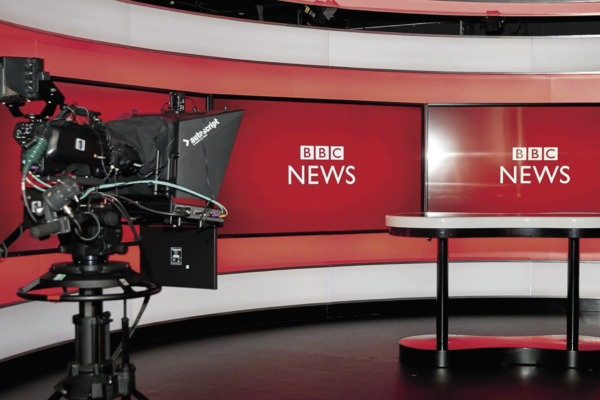BBC World Service achieves record reach
The BBC World Service has published a performance review, covering the period of 2016 – 2020. The five year analysis, set out in the 2016 Agreement with the Secretary of State for Department for Digital, Culture, Media and Sport (DCMS), examines how the BBC World Service has performed in three key areas: growing global reach, achieving quality and impact, and delivering value for the UK audience.
During the period, the total reach of the service grew 42%, from 246 million people on average each week in March 2016 to 351 million people in March 2020. This success is in part due to digital growth, with digital platforms contributing 33% of the total reach across BBC World Service Languages and English.

Liliane Landor, Senior Controller of BBC International Services and Director of World Service, said: “This review shows the incredible impact that the World Service delivers for audiences at home and abroad and we’re incredibly proud of the work our teams have done to create impactful journalism and reach more people than ever before.”
The BBC World Service is funded by a combination of a £254 million annual license fee commitment, BBC Studio profits, and limited advertising. During the period of review, it also received significant grant-funded investment from the UK Government (FCDO) of more than £290 million, which the organisation says has helped it to carry out its biggest expansion since the 1940s.
This includes launching 12 new language services (six across Africa, four in India and Korean and Serbian services) as well as dedicated TV programming for Africa, and enhanced newsgathering expertise around the world, including in Russia, the Middle East, and a strengthened World Service English editorial offer. Funding has also enabled the expansion of bureaux in Delhi and Nairobi (now the second and third largest) and the BBC now has over 75 news bureaux and correspondents in more locations than any other global news media across the world.

In a statement published on the BBC website, the organisation says that in addition to expansion, it has taken significant steps to support trusted journalism and fight fake news around the world:
‘The World Service, as the most trusted international news brand’, is working to support trusted journalism around the globe and has enhanced its fact-checking services and supported the wider journalism sector. This has been achieved through media literacy programmes, training initiatives for young talent, as well as events that bring media expertise together around common goals, such as the Beyond Fake News conferences which included events across India and Nairobi, with representatives from major tech giants as well as attendees from NGOs, media, and politics. These conferences discussed challenges and potential solutions to the fake news problem.’
The positive news comes at a time when the broadcaster has come under fire from a number of angles in the UK, not least from Nadine Dorries – the new Secretary of State for Digital, Culture, Media and Sport (DCMS) – who speaking from the Conservative Party Conference in Manchester earlier this week, said that the BBC needs “real change”, inclusive of “a less elitist and a less snobbish approach”. The Minister also commented on the current debate surrounding the future of other public service UK broadcaster Channel 4, saying that privatisation is an “obvious way” for it to grow.
You can read the full BBC release here.










